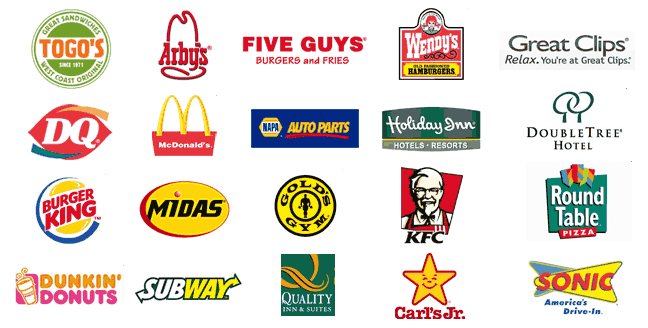In the U.S. alone, franchising represents more than 90 different industries. A 2012 study conducted by the International Franchise Association (“IFA”) estimated that there are roughly 750,000 franchised establishments in the U.S., directly employing 8.1 million people, and contributing $439 billion to U.S. GDP—nearly 3% our estimated GDP in 2012.
The Franchise Industry’s Current Plight
Two trends are converging to threaten the franchising industry’s role as provider of economic growth and opportunity.
First is the absence of financing available to individuals who want to start a franchise business. Home equity lines of credit, historically a source of capital for franchisees, no longer exist for most homeowners. From the IFA:

While improving slightly, limited access to credit continues to hamper the ability of franchisees to get financing, with 52.9 percent of franchisees indicating the lack of small business lending continues to have a negative impact on their business, compared to 55.5 percent one year ago. — The Franchise Business Economic Outlook: 2013
Second is the proliferation of the multi-unit franchisee. These multi-unit franchisees are typically large businesses, or managed investment funds, that own dozens, or even hundreds of franchise businesses. Just last month, Franchise Times’ cover story heralded Flynn Restaurant Group as the “Empire Builder” for being “the first billion dollar restaurant franchisee.” Is this really the highest and best application of the franchise business model?
This second trend is feeding on the first—growing bigger, and faster—and in the absence of available capital, a model that’s been so effective in enabling individuals to start their own business risks becoming just another mechanism for large companies to make more money. The very concept of the classic franchisee—the everyday individual leveraging franchising to start his/her own business; the retiree who is looking for additional financial security; or the military veteran who seeks a support system to transition to business ownership— may largely disappear if something isn’t done.
Enter Crowdfinancing
Investment crowdfunding can bring capital back to the individual franchisee. Facebook shows that Americans follow their favorite brands—millions of cumulative likes and shares—and crowdfunding can enable them to invest in them too. Fans can become actual co-owners. And of course, it’s not just the brand they’ll be investing in, but also the individual behind it.
The structure of a franchise is also very investor-friendly. The conventional franchise model is (i) designed to reach cash flow quickly, and (ii) require only one round of investment (the initial investment). Consequently, investors are less likely to face many of the potential complications of follow-on financings, such as misaligned expectations of later investors, or a dilutive event.
The Franchise Model: Heightened Disclosure and Protections
Franchise business opportunities are also less likely to harbor the type of fraud that regulators constantly fear. Franchises already have extensive disclosure obligations through the regulatory rules set forth by theFederal Trade Commission. These rules require the production of a Franchise Disclosure Document (the “FDD”) for franchisees—and both the FTC and the SBA provide considerable general information regarding business franchising.
Further, franchisors conduct their own extensive due diligence on prospective franchisees. This process commonly includes background checks and suitability determinations. Franchisors go to great lengths to avoid having a unit owned by a franchisee who tarnishes their brand. To be sure, no system is foolproof, but franchising bakes in a great deal of market protections not seen in your typical startup.
Moreover, franchise businesses are often founded upon mature, time-tested business models, which lessens the risk of failure. Leading franchisors offer strong support systems and training programs for franchisees which, by extension, will benefit Crowd investors. (To note, traditional startups are rarely privy to a comparable breadth of support.) Of course, not all franchises are good businesses. While industry failure rates are not easily ascertainable, the required FDD includes data from the franchisor regarding units and failures over the prior three year period.
Franchise investment will never provide a venture-capital return, nor should it try. But its time-tested formula—delivering mature, cash-generating business models to capable entrepreneurs and deeply supporting them throughout their journey—makes for a highly attractive asset class. Both financially, and socially.
Why it Matters
A large baby-boomer generation is staring down retirement, wondering whether they’ll outlive their savings. Military downsizing is pushing our nation’s heroes out of their military careers, and into a soft economy that is struggling to adequately support their civilian transition. Many laid off professionals, far too young to retire, remain unemployed or underemployed.
Starting a franchise business can be a lifeline for these people. And where traditional financing is stepping out, investment crowdfunding can step in. If only our regulators—specifically the SEC & FINRA—allow. If only, as Congress fully intended in its passage of the 2012 JOBS Act, they implement legislation that is supportive, cost-effective and workable.
Franchising is a driving force behind our economy; and a critical on-ramp to small business ownership for multitudes of aspiring Americans. They must.
This article was written by Mark Mohler with contribution from Jonathan Sandlund. Mark Mohler is a business lawyer, serial social entrepreneur and founder & CEO of Sprigster. Sprigster is a crowdfunding site dedicated to the franchising industry. Sprigster’s “Boost a Hero” program brings the power of crowdfunding to support veterans who are transitioning out of the military and into small business ownership.
via The Crowd Cafe















Just came across this website and looking forward to seeing how things develop. We sure need a news site dedicated to crowdfunding with all that is happening in this space today.
Hello Rey,
I appreciate you taking the time to read my article and write this awesome feedback!
Thanks for your support!
Warmly,
Jordan